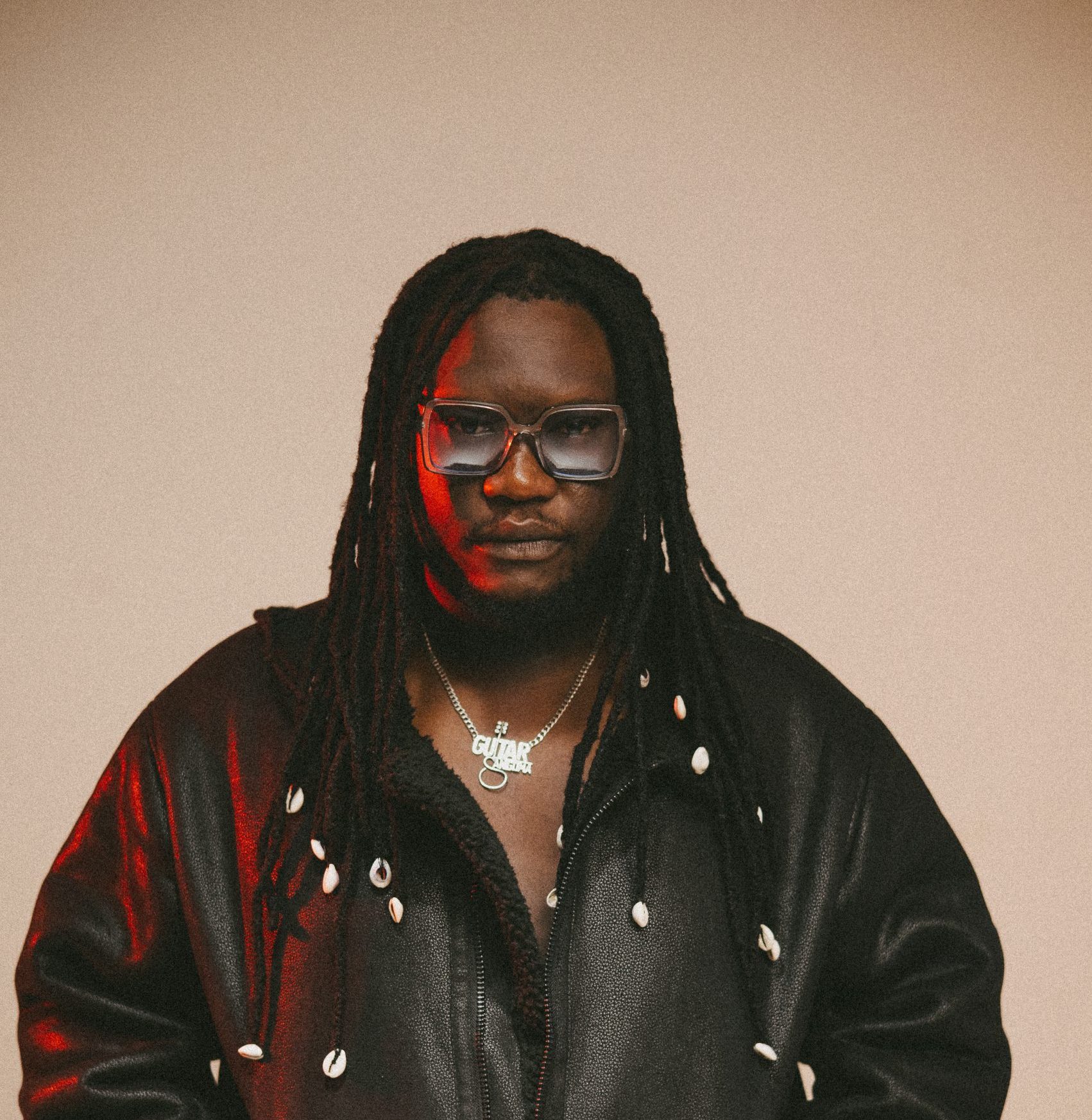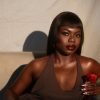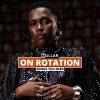In an era where African music is rightfully commanding global stages, the conversation is often dominated by the infectious rhythms of Afrobeats and Amapiano. But what of the deeper, more introspective currents? The sounds that don’t just make you dance, but feel? The music that seeks not just to entertain, but to heal? Enter The Guitar Sangoma. Sylent Nqo embodies this principle. His moniker is not merely a stage name; it is a mission statement. A Sangoma, in African tradition, is a healer, a bridge between the physical and the spiritual. For Sylent Nqo, the guitar is his divining bone, a tool to channel ancestral rhythms and diagnose the ailments of the modern soul. His artistry does not box him as just a performer but a vessel as well.
His sound is an eclectic fusion, a direct reflection of his Zimbabwean and Mozambican heritage. Imagine the soulful, resonant melodies of a mbira from Zimbabwe meeting the vibrant, coastal rhythms of Mozambique’s Marrabenta, all filtered through the electrifying presence of a guitar virtuoso. It’s a sound that aims to be timeless, rooted in tradition yet vibrantly contemporary. His journey, from a childhood filled with the sounds of Thomas Mapfumo and Oliver Mtukudzi to sharing stages with legends like Hugh Masekela, has been one of listening to a profound calling. Now, with a celebrated debut album, “Sylent Treatment”, behind him and new, rhythm-forward singles like “Huya” signaling an evolved chapter, Sylent Nqo is focused on a higher goal.
He aims to use his platform not just for promotion, but for connection, demystifying his craft and building a community. For The Guitar Sangoma, every chord progression is a story, every performance a shared ceremony. His primary goal is to tell the stories of Africa’s rich cultural heritage, its struggles, and its triumphs, sharing them with a world in need of its healing power.
For iMullar, Sylent Nqo discusses his unique identity, the responsibility of his name, and how he plans to elevate instrumental music on the global stage.
Your moniker is “The Guitar Sangoma”. “Sangoma” is a traditional healer. Can you elaborate on what this name means to you and how the healing power of music manifests in your performances and compositions?
The Guitar Sangoma is more than just a stage name. It’s a reflection of my connection to African traditions and the healing power of music. A Sangoma, in African culture, is a traditional healer who uses their knowledge and spiritual connection to diagnose and treat physical, emotional, and spiritual ailments. For me, this means I’m not just a musician, but a vessel for the music that flows through me. My guitar becomes an extension of myself, a tool to channel the energy and emotions of those who listen. When I perform, I feel like I’m tapping into a deeper power that transcends the physical realm
The healing power of music is at the core of my performances and compositions. I believe music has the ability to touch people’s souls, to calm their minds, and to uplift their spirits. When I’m on stage, I can feel the energy of the audience, and I do my best to channel that energy into the music. My goal is to create a sense of connection and community, to bring people together through the universal language of music. Ultimately, it’s a responsibility to use my music to make a positive impact on the world. I’m humbled by the opportunity to share my gift with others and to be a part of their healing journey as well as mine.
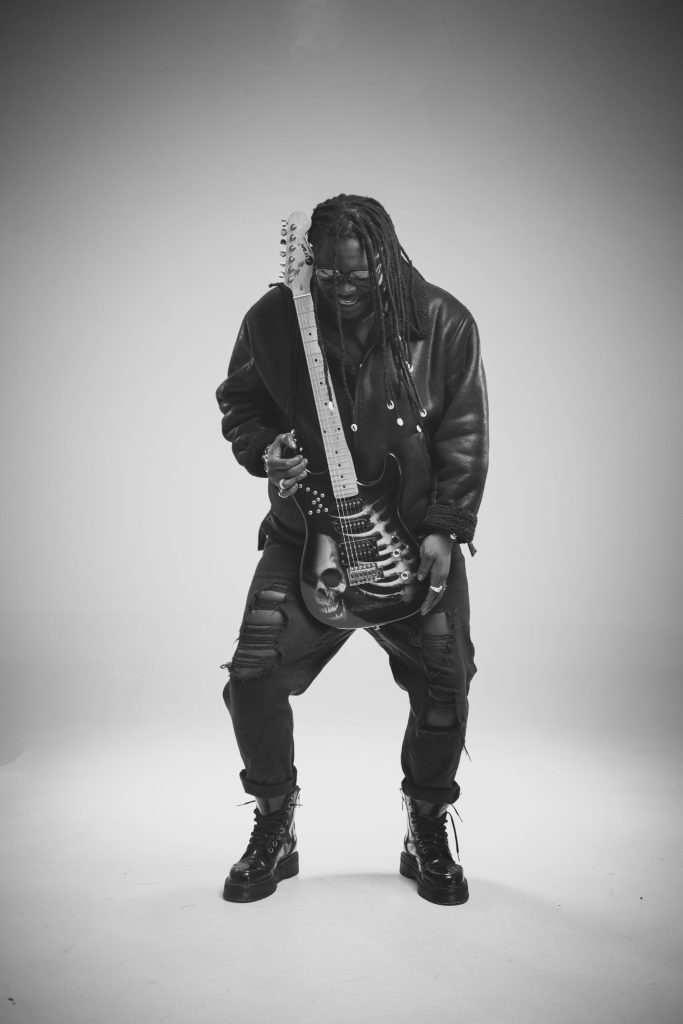
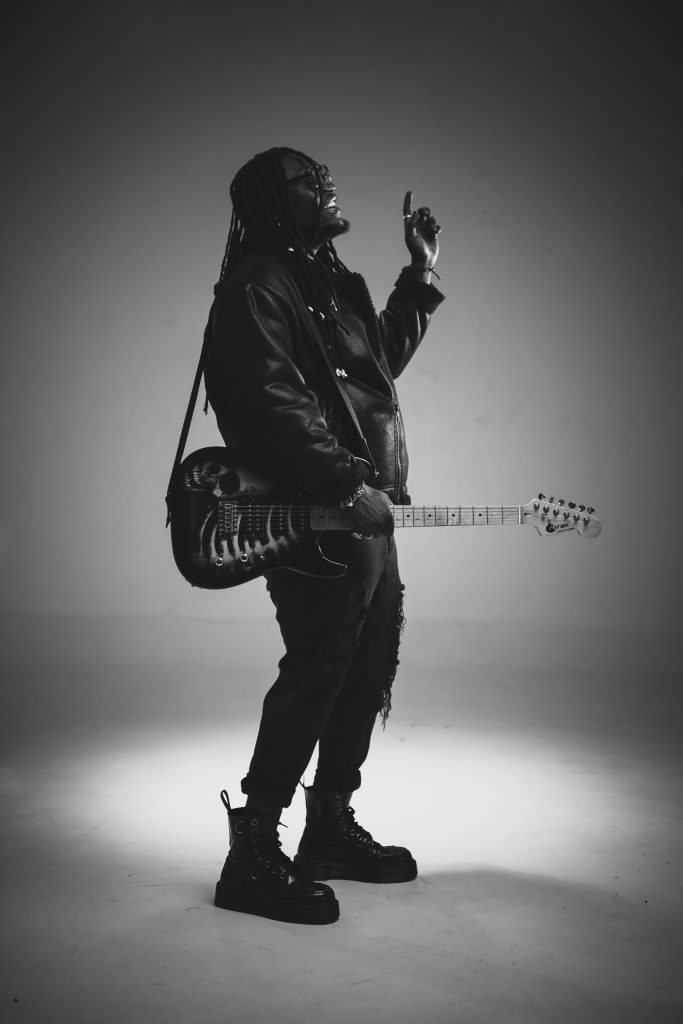
Your heritage is Zimbabwean and Mozambican. How do these two distinct cultures converge and express themselves in your identity as an artist and individual?
Growing up in a diverse environment, I was exposed to various musical styles and traditions that have significantly influenced my sound. My music is an eclectic fusion of African rhythms, traditional sounds, and contemporary styles, reflecting the rich cultural diversity of my roots. My Zimbabwean side brings the soulful sounds of Chimurenga and mbira music, while my Mozambican side infuses the rhythms and melodies of Marrabenta. By blending these styles, I create a unique sound that not only showcases my heritage but also tells stories of my ancestors, culture, and personal experiences.
What were some of your musical influences at an early age? And what point in your life did you decide to be a musician?
My family played a pivotal role in my music consumption. Listening to traditional folk songs, Chimurenga, Country music, Kizomba and Marrabenta. These rhythms and melodies seeped into my soul, shaping my musical identity. Some of my earliest influences were legendary African musicians like Thomas Mapfumo, Oliver Mtukudzi, Louis Mhlanga, Jimmy Dludlu, Alick Macheso and Gilmberto Gil. Their music wasn’t just entertainment. It was a way of storytelling, healing, and connecting with the community.
As for deciding to become a musician, it wasn’t a conscious decision, it was more like a calling. I wanted to be a rugby player but I was always so drawn to music, and my parents made it easy for me by being supportive thus encouraging me to explore different instruments. I started playing different instruments at a young age, and as I grew older, so did my love for the guitar and my passion for music only deepened. It went from being a hobby to a way of life.
You actively promote diversity and collaborative artistry online. What is the core message you hope to spread through these global artistic conversations?
Through my music and online presence, I aim to spread a message of unity, love, cultural appreciation, and the healing power of art. I believe music can bridge cultural divides and bring people together. I want to inspire others to explore diverse artistic traditions, celebrate our shared humanity, and tap into the transformative power of creative expression. Through artistic collaborations and online engagement, I aim to show that art can be a powerful tool for social change, empathy, create a more harmonious and compassionate world and most importantly, healing.
Your music is classified as “Alternative”. How would you describe your sound in your own words?
I’d say it’s a unique blend of African traditions and contemporary sounds, deeply rooted in my Zimbabwean and Mozambican heritage. I channel ancestral rhythms through my music, creating a sound that’s both healing and electrifying. Imagine a mix of Chimurenga, mbira, Sungura, AfroBeats, Kizomba and Marrabenta rhythms, blended with modern styles, to create something truly distinctive. My music is about storytelling, connecting with the community, and celebrating our shared humanity.
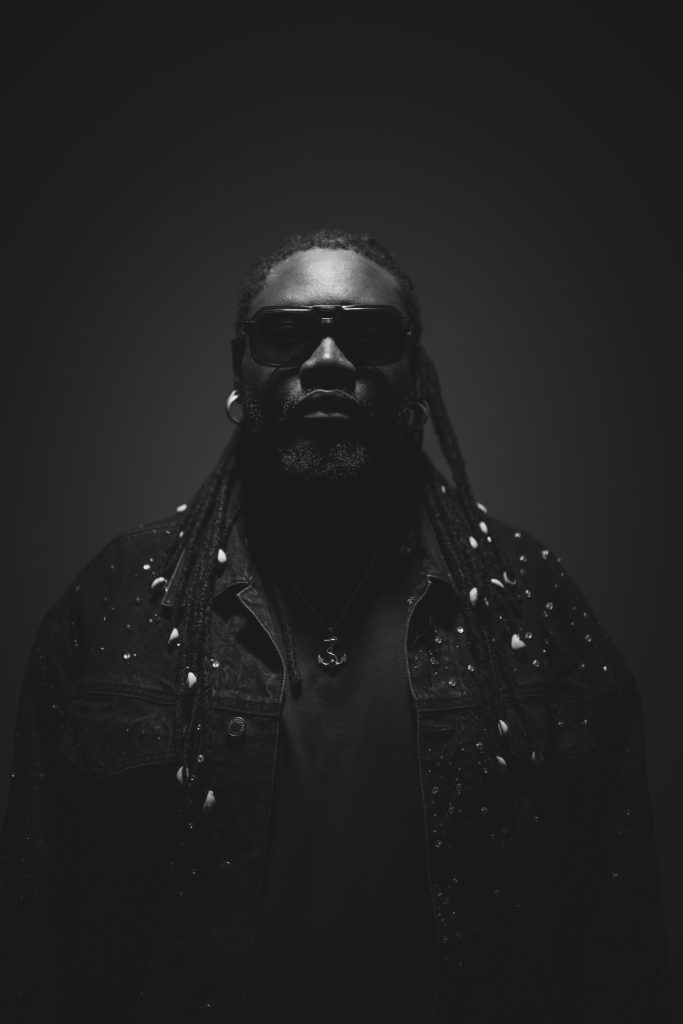
Your debut album is titled “Sylent Treatment”. What is the significance behind this name, and what was the overarching theme or journey you aimed to capture with your first full-length project?
The title, “Sylent Treatment” reflects the themes of silence, introspection, and the unspoken emotions that often accompany personal growth and healing. The album is a vivid explanation of my own personal journey, exploring identity, culture, and the intersection of tradition and modernity. By sharing my story and emotions through music, I aimed to capture the journey of self-discovery, truth and the complexities of the human experience despite background.
As an instrumentalist first and foremost, how do you approach the songwriting process? Does a melody on the guitar typically come before any lyrical ideas?
My songwriting process often begins with a melody in my head or a rhythmic idea on the guitar. I find that the music itself can evoke emotions and tell stories without words. Sometimes, a particular chord progression or melodic phrase will spark a feeling or atmosphere, and I’ll build upon that. While I’m playing, I’ll often hum or vocalize sounds to experiment with different moods and textures. Occasionally, lyrics might emerge, but I don’t always feel the need to add words. The instrumentation itself becomes a form of storytelling, allowing listeners to interpret and connect with the music in their own way.
How does the dynamic with your band, “The Noise Makers”, shape the final sound that audiences hear?
Working with The Noisemakers allows me to tap into a deep musical connection that enhances the final sound audiences hear. This band has been my longest-running collaboration, and over time, we’ve developed an almost telepathic understanding of the music and each other and that brings out the best in our performances. We frequently improvise on stage, which adds a layer of excitement, spontaneity and creativity to our music. This approach keeps our performances fresh and exciting, both for us and the audience.
Winning the “Senior Solo Instrumental Grand Champion of the World” in 2016 and “Best Alternative Musician” award in 2019 are two monumental feats. How did those achievements impact your career trajectory and self-belief?
The recognition I received from the World Championships opened doors to new opportunities and validated my hard work. It was a testament to my dedication to my craft and exposed me to a global audience. Winning an award at home in 2019 was the icing on the cake. I mean, who doesn’t want to be recognised by their people?
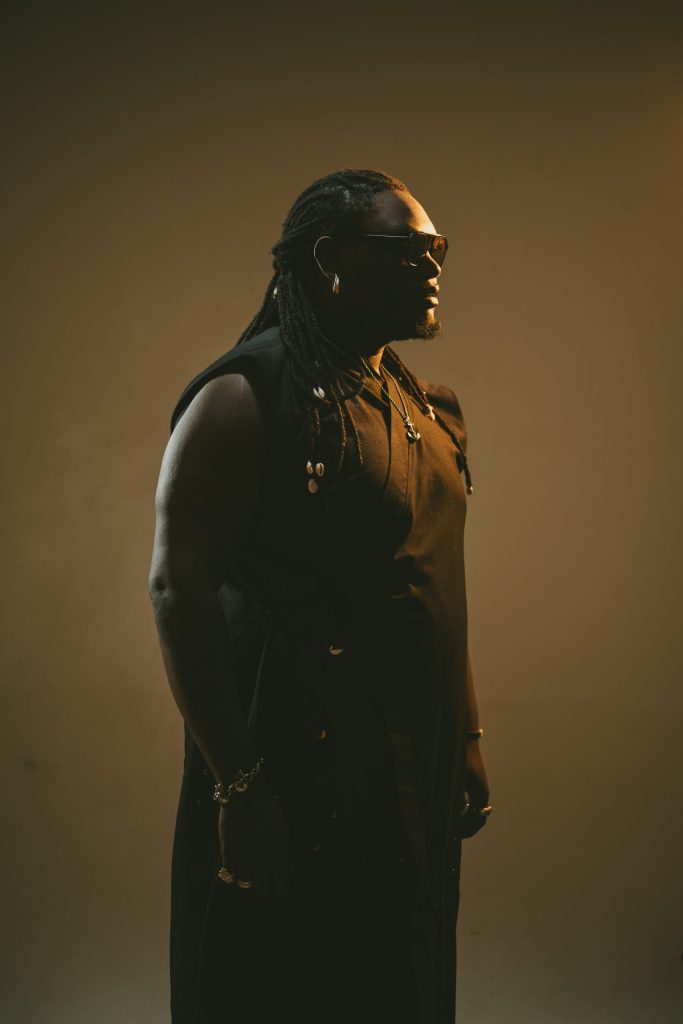
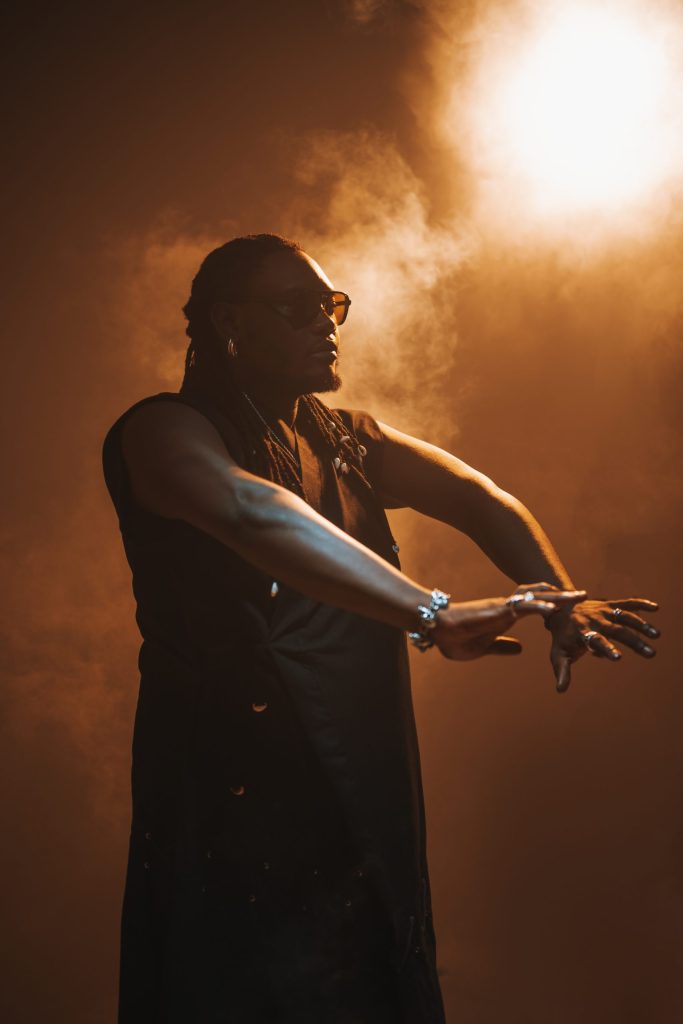
You’ve shared the stage with legends like the late Dr. Oliver Mtukudzi, UB40 and Hugh Masekela. What is the most valuable lesson you learned from performing alongside such iconic figures?
Performing with legends like Dr. Oliver Mtukudzi, UB40, and Hugh Masekela was an incredible experience that taught me the importance of humility, respect, and staying true to my art. One valuable lesson I learned is the power of authenticity and cultural pride in music. Seeing how these artists connected with their roots and shared their stories through their craft inspired me to do the same.
Your collaborations span a wide spectrum, from Davido and Mr Eazi to Jah Prayzah. How do you adapt your sound and artistry to such different musical landscapes, and what do you seek to learn from each collaboration?
Collaborating with artists from diverse genres and backgrounds is a thrilling experience that allowed me to grow as an artist and explore new sounds. I worked with artists like Jah Prayzah, Davido, Shatta Wale & Mr Eazi as a session guitarist and I focused on understanding their unique styles and strengths while bringing my own perspective to the table.
Looking at your recent singles like “Huya” and “Call Me Back“, how does your current musical direction compare to the work on your 2022 album, “Sylent Treatment”? Are you exploring new sounds or themes?
I’m definitely not the same artist I was when I made “Sylent Treatment” but the same soul. I keep evolving with every record that I produce as I always stay exploring different ways of expression. Lately I’m in the mood to make people dance through my music.
What are your primary goals for the next phase of your career? Is there a specific dream collaboration or a venue you aspire to headline?
My primary goals for the next phase of my career are to tell the stories of Africa’s rich cultural heritage, struggles, and triumphs, and to share them with a global audience. Collaborating with artists like Youssou N’Dour, Angelique Kidjo, or Salif Keita, who are not only incredible musicians but also champions of African culture. I’d also want to headline major festivals in Africa and all over the world. I’m also really passionate about giving back to my community by mentoring and collaborating with emerging African artists, helping them to find their voice and share their stories with the world.
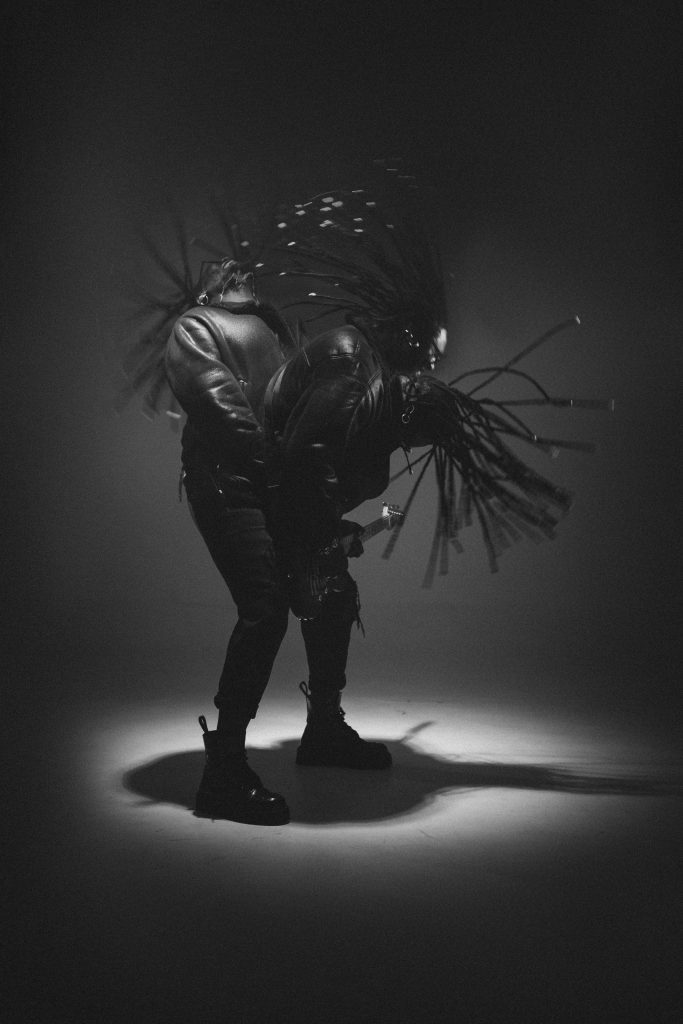
What role do you see your music playing in the contemporary African music scene, particularly in elevating instrumental music?
By contributing to the contemporary African music scene, I aim to help shape the narrative of African music, promoting its diversity, innovation, and excellence. I’d love to promote Cultural Heritage by incorporating and showcasing different African rhythms, styles and languages. Elevating instrumental music by pushing boundaries of what is possible on the guitar and many other instruments. Inspiring a new generation of African Musicians to explore innovative ways of promoting their ethnic music and packaging it for a global audience.
How do you use your platforms not just for promotion, but to connect with your audience and demystify the craft of guitar playing?
I aim not only to promote my music but also build a supportive community of music lovers. I share a lot of BTS content so people can understand what goes on when we create music and what that process looks like. I also engage with my audience thus giving my fans a sense of knowing the person they love on a personal level. I host workshops and songwriting camps with different young artists from countries that I travel to.
Follow @theimullar on Instagram and X(Twitter) for more.

